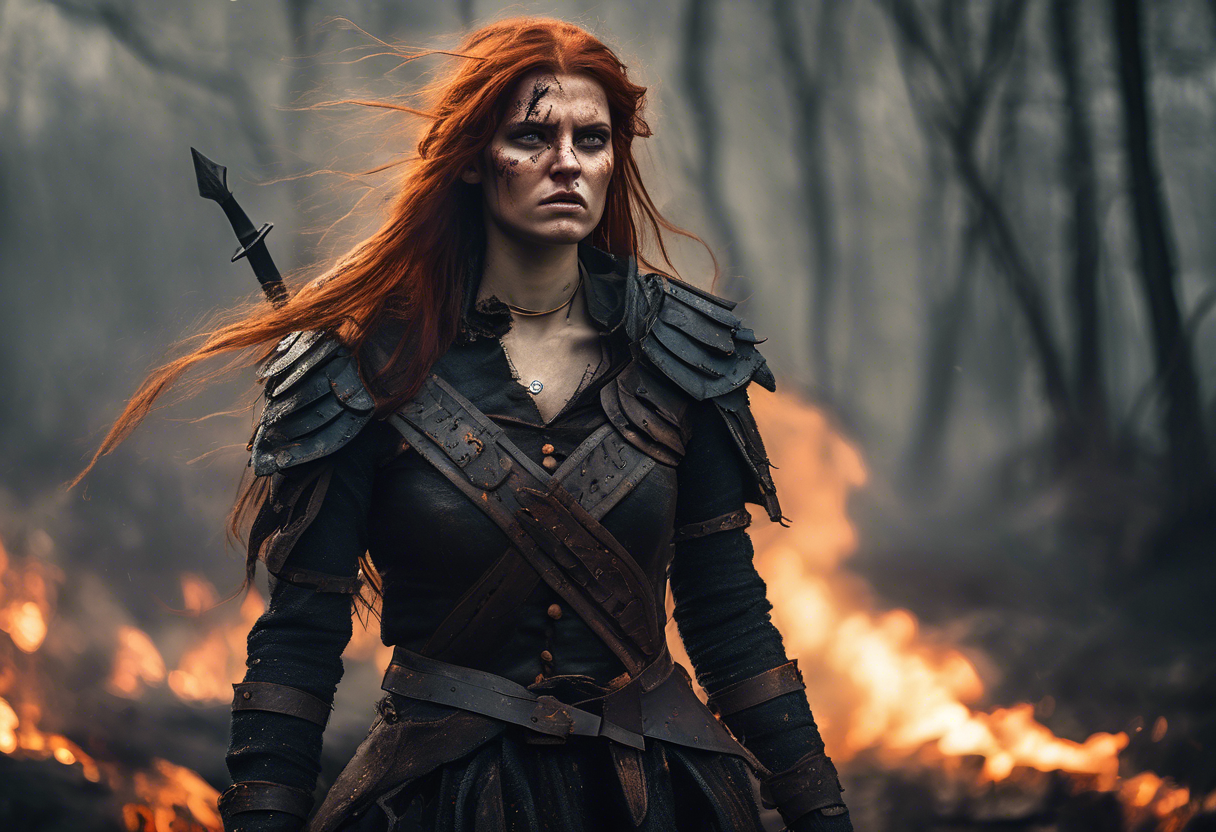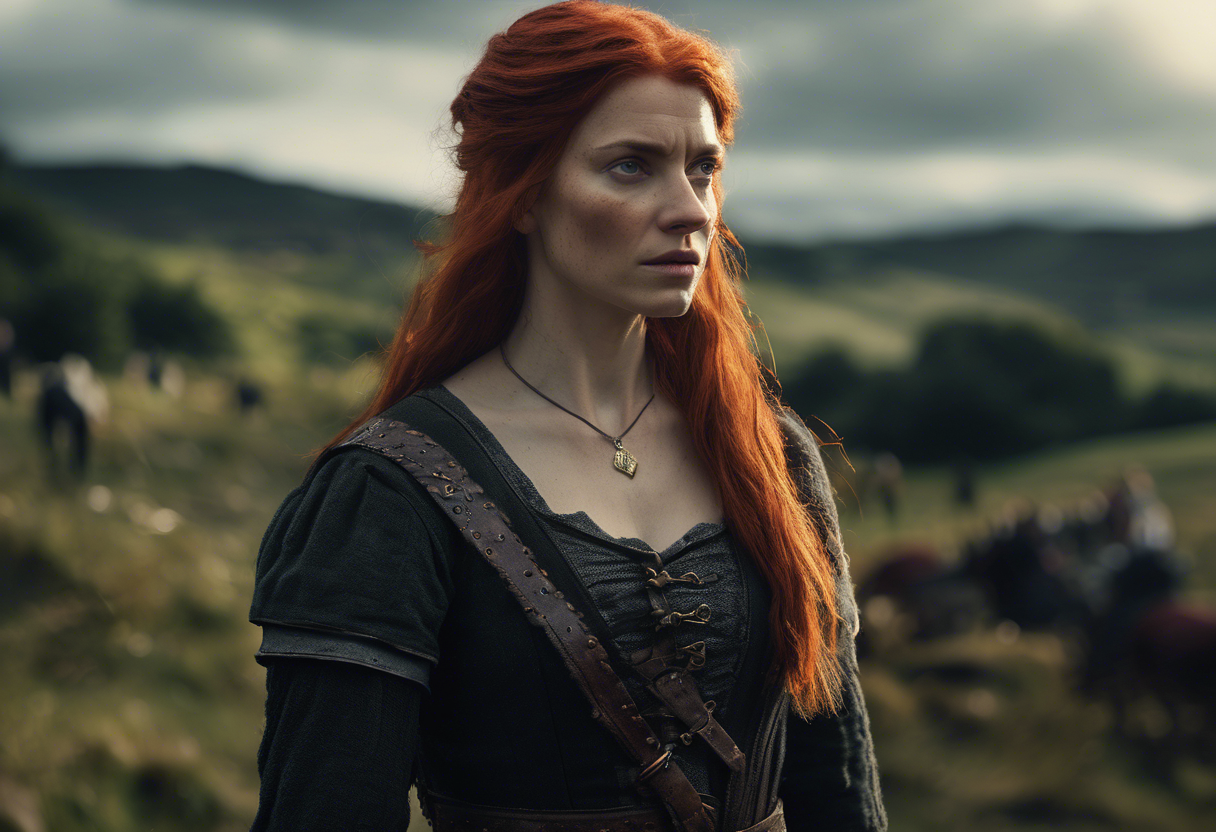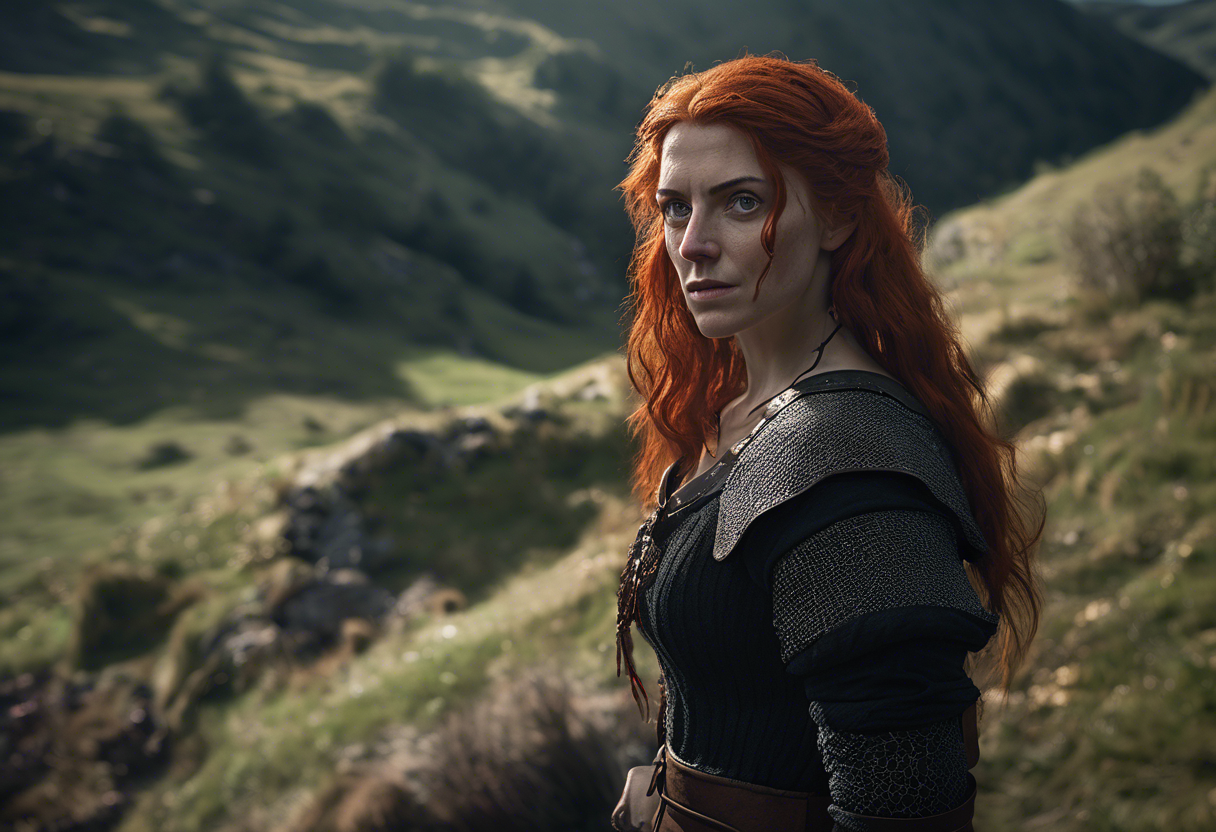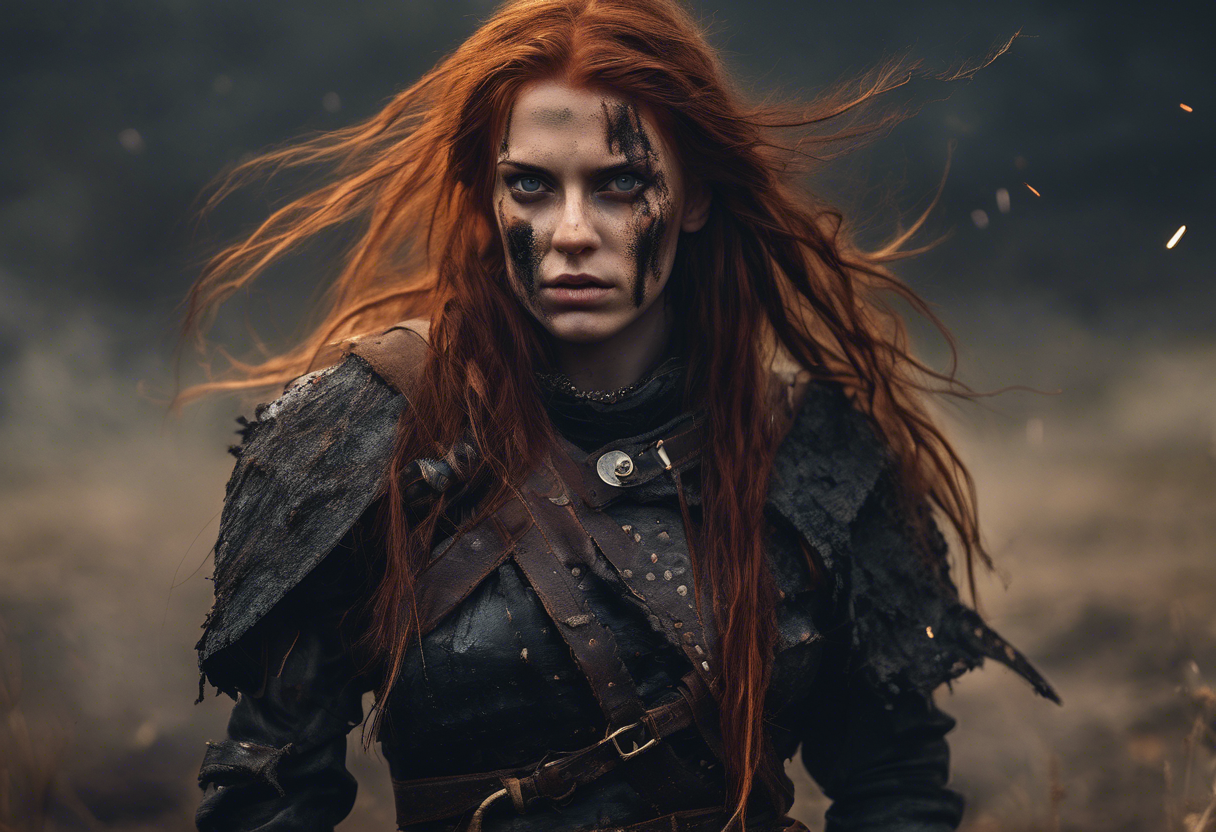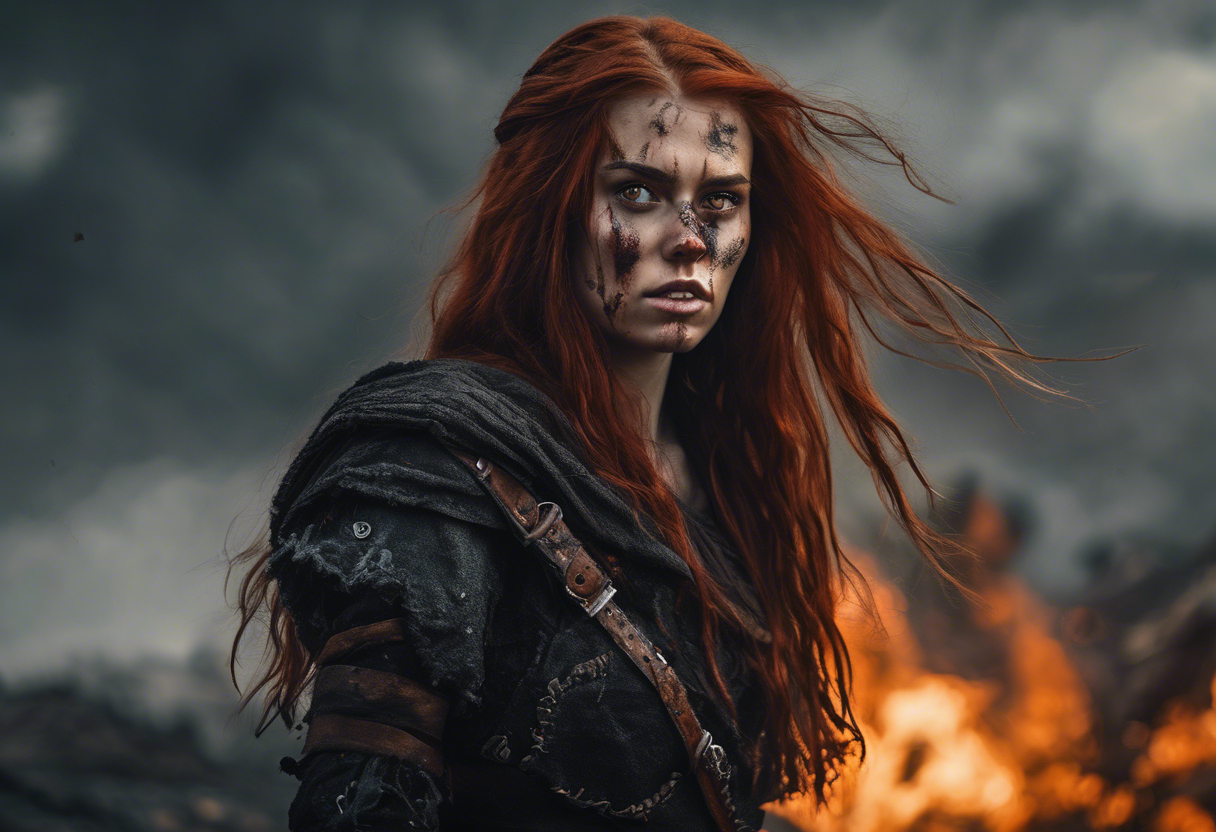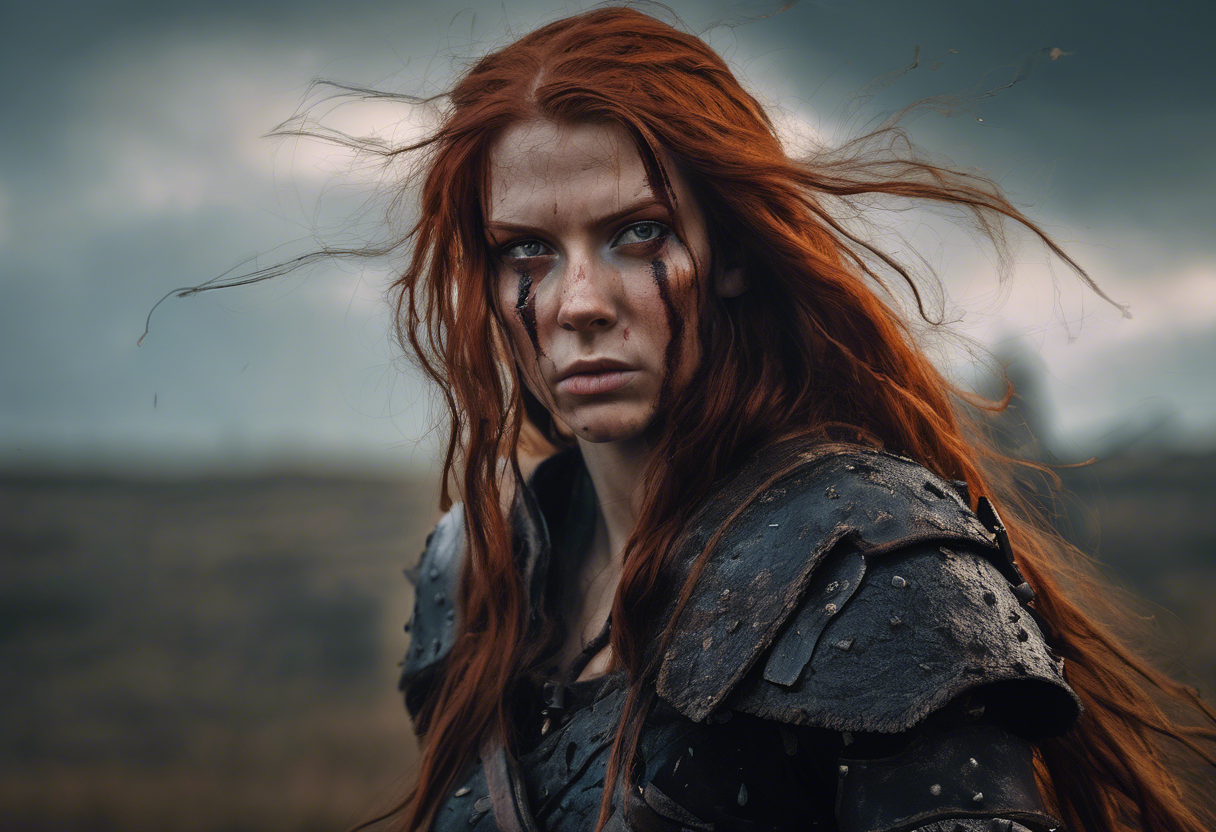Contents
Introduction
Falka is a pivotal character in the Netflix series "The Witcher," drawn from the rich literary universe created by Andrzej Sapkowski. She is a quarter-elf woman and the eldest daughter of King Vridank of Redania and his first wife, Beatrix of Kovir. Falka’s origins are deeply rooted in the historical and political landscape of the Continent, making her a significant figure in both the books and the television adaptation.
Falka’s backstory is marked by tragedy and rebellion. After her father divorced her mother and remarried, Falka was sent back to Kovir with her mother. Years later, driven by a desire to reclaim her birthright, Falka led a bloody rebellion against her father, killing him, her stepmother, and her two half-brothers, earning her the nickname "Bloody Falka" [2][5].
Despite her rebellion’s initial success, Falka was eventually captured, tried, and condemned to death by burning at the stake. Before her death, she cursed those present and promised that her progeny would exact revenge on them. This curse and her rebellious spirit make Falka a powerful and enduring figure in the narrative of "The Witcher."
Role in the Series
In the Netflix series "The Witcher," Falka’s role is primarily seen through her interactions with Ciri, the main protagonist. During Season 3, Ciri finds herself in the Korath Desert after being separated from her friends during the battle of Aretuza. Here, she experiences a series of visions and hallucinations, including an encounter with Falka.
Falka appears to Ciri as a mysterious and hooded figure, sharing her story and the reasons behind her rebellion. This encounter has a profound impact on Ciri, who begins to identify with Falka’s feelings of abandonment and rage. When Ciri returns to civilization and is captured by thugs, she is rescued by a group of criminals. When asked for her name, Ciri introduces herself as Falka, marking a significant shift in her identity and embracing a darker side of herself [2][5].
Falka’s storyline also intersects with broader themes of power, identity, and the struggle for justice. Her rebellion and subsequent death serve as a historical backdrop that influences the current events of the series, particularly the prophecies surrounding Ciri. According to the lore, Ciri is a descendant of both Falka and Lara Dorren, two women whose legacies are intertwined with the fate of the world [2][3].
Character Analysis
Falka is a complex and multifaceted character, driven by a mix of motivations that include a desire for justice, a need for validation, and a deep-seated anger. Her personality is defined by her determination and courage, as she challenges the patriarchal and monarchical structures that have wronged her.
One of Falka’s most compelling traits is her unwavering commitment to her cause. Despite the odds against her, she rallies a rebellion and succeeds in capturing Redania, albeit temporarily. This strength of character is contrasted with her tragic end, highlighting the brutal consequences of challenging established power.
Falka’s relationship with Ciri is particularly significant. Through their shared experiences of abandonment and the struggle for identity, Falka becomes a symbol of empowerment and resistance for Ciri. Falka’s advice to Ciri to "feel her rage and burn everything to the ground" reflects her own approach to dealing with injustice, and it marks a turning point in Ciri’s journey towards embracing her darker side [2][5].
Themes and Symbolism
Falka embodies several key themes in "The Witcher" series, including the struggle for power, the consequences of rebellion, and the complexities of identity. Her character symbolizes the resistance against oppressive systems and the personal costs of such resistance.
The theme of power is central to Falka’s story. Her rebellion against her father and stepmother highlights the gender and class dynamics at play in the world of "The Witcher." Falka’s actions challenge the traditional roles assigned to women and the legitimacy of monarchical rule, making her a powerful symbol of feminist resistance [2][5].
The curse that Falka places on her enemies before her death also adds a layer of symbolism. It represents the enduring legacy of her rebellion and the idea that the actions of the past can have profound consequences on the future. This curse is particularly relevant to Ciri, who may be the descendant destined to fulfill or defy this prophecy [2][3].
Cultural Impact
Falka’s character has had a significant cultural impact, particularly among fans of "The Witcher" series. Her introduction in Season 3 marked a pivotal moment in the narrative, and her influence on Ciri’s character development has been widely discussed.
The portrayal of Falka by actress Hiftu Quasem has been well-received, bringing depth and nuance to a character who could have been relegated to mere historical footnote. The decision to make Falka a central figure in Ciri’s journey has enriched the series, adding layers to the story that resonate with audiences [3][5].
Falka’s influence extends beyond the series itself. She represents a archetype of the strong, rebellious woman who challenges societal norms, a figure that is increasingly relevant in contemporary discussions about power, identity, and resistance.
Critical Reception
The reception of Falka’s character has been largely positive, with critics and audiences alike praising the depth and complexity she brings to the series. The decision to introduce Falka in Season 3 was seen as a bold move, adding new dimensions to the narrative and character arcs.
Some critics have noted that Falka’s backstory and rebellion serve as a powerful commentary on the themes of the series, particularly the struggle for power and the consequences of challenging established order. Others have praised the way Falka’s character influences Ciri’s development, marking a significant shift in her identity and trajectory [2][5].
However, there have also been some criticisms regarding the pacing and integration of Falka’s storyline into the broader narrative. Some viewers felt that the introduction of Falka could have been more gradual, allowing for a deeper exploration of her character and impact on the series.
Legacy
Falka’s legacy in "The Witcher" series is multifaceted and enduring. She represents a powerful symbol of resistance and empowerment, and her influence on Ciri’s character sets the stage for future developments in the series.
As a character, Falka continues to inspire discussions about power, identity, and the consequences of rebellion. Her story serves as a reminder of the complexities of historical narratives and the lasting impact of individual actions on the world.
In terms of broader cultural impact, Falka’s character archetype—the strong, rebellious woman who challenges societal norms—continues to resonate with audiences. She joins a lineage of powerful female characters in literature and media who embody the spirit of resistance and change.
References
- https://www.imdb.com/news/ni64174555/
- https://www.businessinsider.com/who-is-falka-in-the-witcher-season-3-ciri-explained-2023-7
- https://redanianintelligence.com/2022/12/19/the-witcher-season-3-and-blood-origin-cast-falka/
- https://www.youtube.com/watch?v=awVaTBSDUHQ
- https://screenrant.com/the-witcher-falka-hooded-woman-ciri-new-name/

